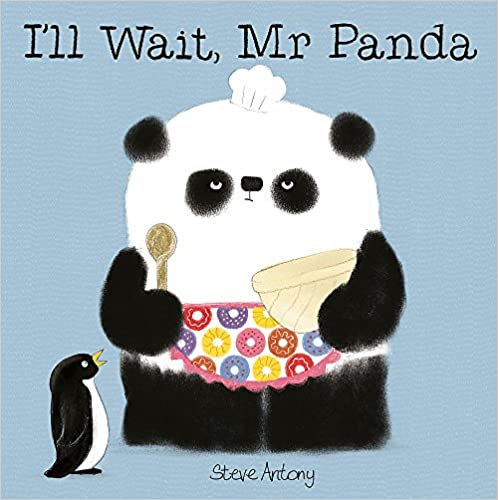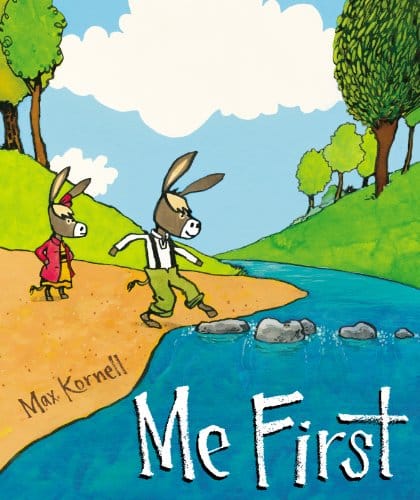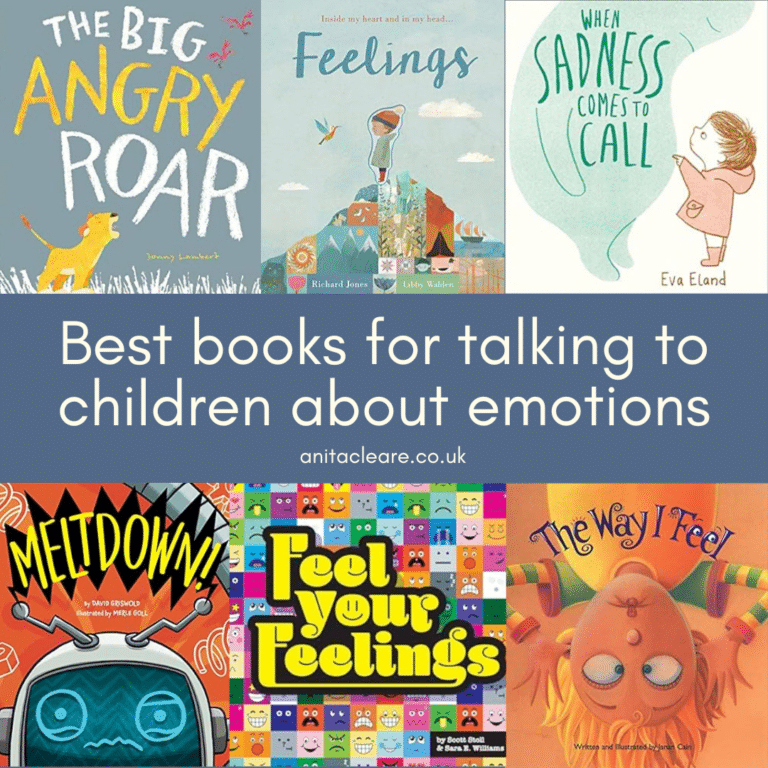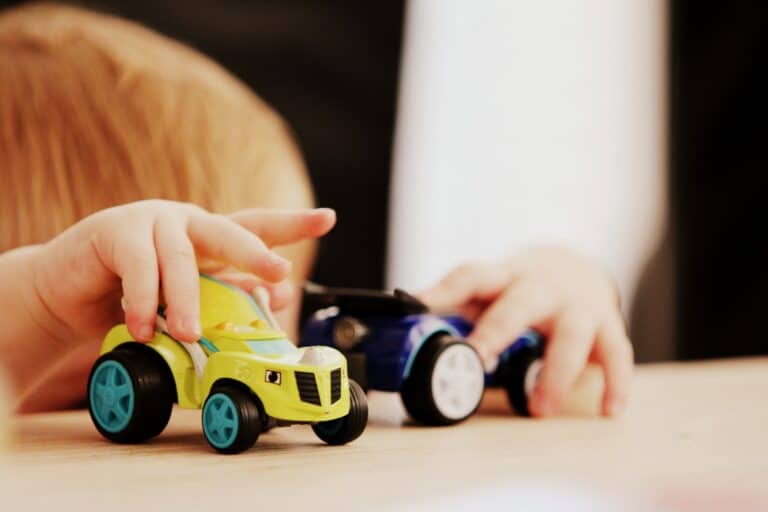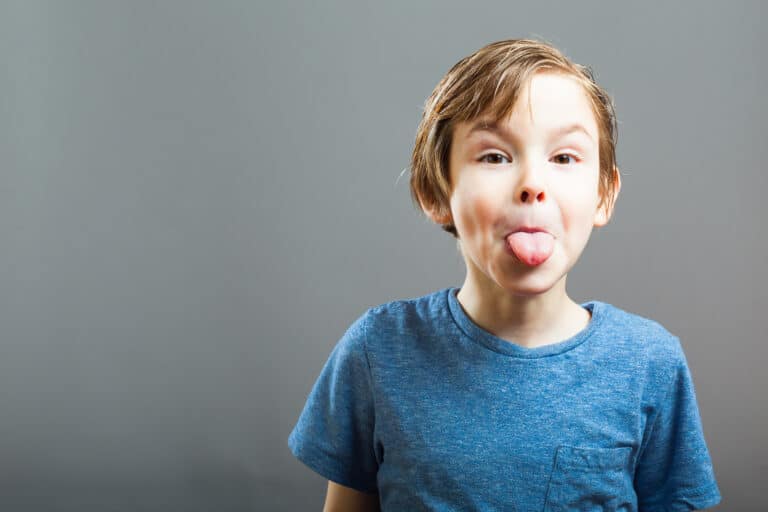Best books to teach children social skills (2-7yrs)
The absolute best way for children to learn social skills is through practice. Young children needs lots of opportunities to play with other kids – older, younger and the same age. There will be some bumps as children make mistakes and refine their social strategies but, in general, the more opportunities children have to practise social skills, the more quickly they learn them.
Sometimes, children need a little bit of adult intervention to help them on their way (see Helping young children make friends). Picture books are a great way to raise children’s awareness of social and emotional topics. Snuggling up with a story is a lovely way to talk through issues with young children and introduce new ideas.
When it comes to social skills, there are some really good books out there to help you raise your little one’s awareness of key concepts like sharing, empathy, friendship and patience. Here are my recommendations for the best books to teach children social skills (for children aged 2-7 yrs).
*This post contains affiliate links
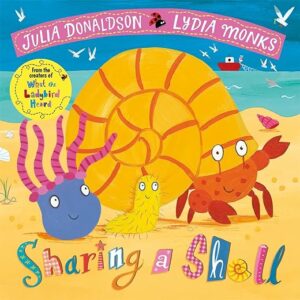 Sharing a Shell (by Julia Donaldson)
Sharing a Shell (by Julia Donaldson)
With families spending so much time indoors together these days, Sharing a Shell really strikes a chord! Because, let’s face it, we can’t always get on with each other all the time. And we’d all like the shell to ourselves sometimes, right? Visually, it’s a bright sunny book (a great antidote to winter blues!) with wiggly sea creatures to charm the youngest of readers. A charming exploration of friendship issues. (Age 2-6yrs).
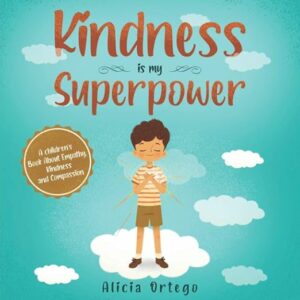 Kindness is my Superpower (by Alicia Ortego)
Kindness is my Superpower (by Alicia Ortego)
This is an absolute treasure trove for teaching kindness and compassion. It’s very much a ‘teachy’ book rather than a great story book (so not so good for toddlers). But given the impact of coronavirus on children’s opportunities for socialising, you might find a direct heavy-lifter of a book quite useful. Kindness is my Superpower explains empathy very clearly, offers lots of examples of kindness and caring, and (as long as UK readers can overlook all the Americanisms) it is inclusive and multicultural. A useful book for these challenging times. (Age 4+)
Mine! (by Emily Gravett)
(by Emily Gravett)
This Bear and Hare story is ideal for really young children – choose the board book version so they can read it again and again! There are not too many words on each page and the rhymes are perfect for children who are still learning to talk. Mine! has a simple message about sharing which will start your little one thinking about what sharing means and why we do it. (Age 1-4yrs).
 How Do Dinosaurs Play With Their Friends? (by Jane Yolen)
How Do Dinosaurs Play With Their Friends? (by Jane Yolen)
My dinosaur-obsessed boys loved the ‘How Do Dinosaurs…?’ series. The illustrations are wonderfully retro and the rhymes are well-crafted. The stories have a quirky humour that connects directly with children’s lives. Really easy for adults to bring alive when reading out loud! How Do Dinosaurs Play With Their Friends has short simple messages about sharing and all the other basic do’s and don’ts of playing nicely. (Age 2-5yrs).
 I’ll Wait, Mr Panda (by Steve Antony)
I’ll Wait, Mr Panda (by Steve Antony)
If your child finds it hard to wait (as all children do!), then I’ll Wait, Mr Panda is the perfect book for you. Mr Panda is making a surprise but all the other animals get impatient. What will the surprise be and will the penguin get rewarded for his patience? A jolly good read as well as a lesson in the virtues of patience, this book is perfect for children aged 2-6yrs. (And the exasperated look on Mr Panda’s face makes me smile every time!).
 How to Apologize (by David LaRochelle)
How to Apologize (by David LaRochelle)
Funny examples and sweet illustrations, How to Apologize is a must- read for little ones still learning when to say sorry and how. It isn’t at all preachy and will make little ones laugh (and hopefully think a little too). Great for ages 3-7rs.
 Stop and Smell the Cookies (by Gibson Frazier)
Stop and Smell the Cookies (by Gibson Frazier)
If your little one struggles with impulsivity, this is a lovely read. Stop and Smell the Cookies is all about learning to slow down and pause before you act. The central image of imaginary cookie smells is perfect for young children, really concrete and visceral. (Age 4-7yrs)
 Stick and Stone (by Beth Ferry)
Stick and Stone (by Beth Ferry)
Stick and Stone is a great book for talking to your child about friendship. How do you make friends? How do good friends treat each other? And what about kindness? There is a subtle anti-bullying message in this book which might be really helpful if you think your little one is stuck in a negative friendship. A good conversation starter, it’s not preachy, just a lovely story and very gentle. A great snuggly read before bed as well as a way of talking about serious issues. (Age 3-6yrs).
 Horrible Bear! (Ame Dyckman)
Horrible Bear! (Ame Dyckman)
This is such a fun read. It’s the kind of book kids respond really well to – big character, big plot lines, big emotions. But – as far as books for teaching children social skills go – these features also make it a great conversation starter. Horrible Bear! is especially helpful for children who find it hard to control themselves, have tantrums and/or for discussing the importance of saying “I’m sorry!”. (Age 2-5yrs).
I hope you find this selection of books to teach children social skills useful. Please do get in touch and let me know if you want to recommend alternatives!
If you have a child who is very shy, you might also want to take a look at these Children’s books about shyness. Or, if difficult friendships are an issue, see Books for helping children manage friendship problems.
*This is not a sponsored post, I have chosen these books because I genuinely recommend them. It does contain affiliate links which means that if you click through from this post and buy a book, the Positive Parenting Project will receive a small commission. There is no additional charge to you. This helps us keep providing free content. For more info, see Disclosure Notice.

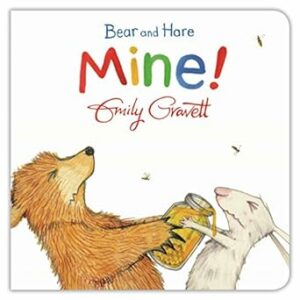
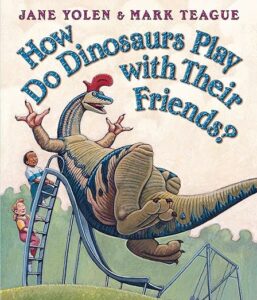 How Do Dinosaurs Play With Their Friends?
How Do Dinosaurs Play With Their Friends?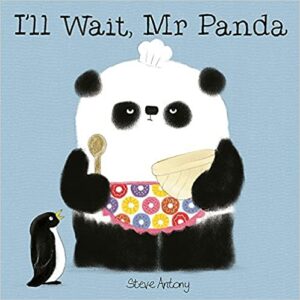 I’ll Wait, Mr Panda
I’ll Wait, Mr Panda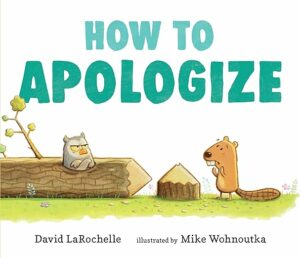 How to Apologize
How to Apologize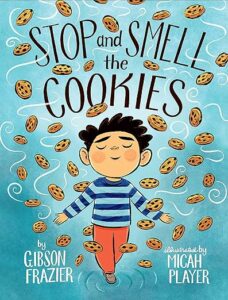 Stop and Smell the Cookies
Stop and Smell the Cookies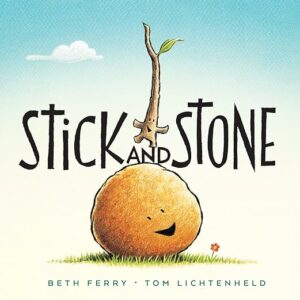 Stick and Stone
Stick and Stone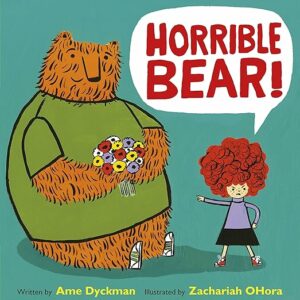 Horrible Bear!
Horrible Bear!